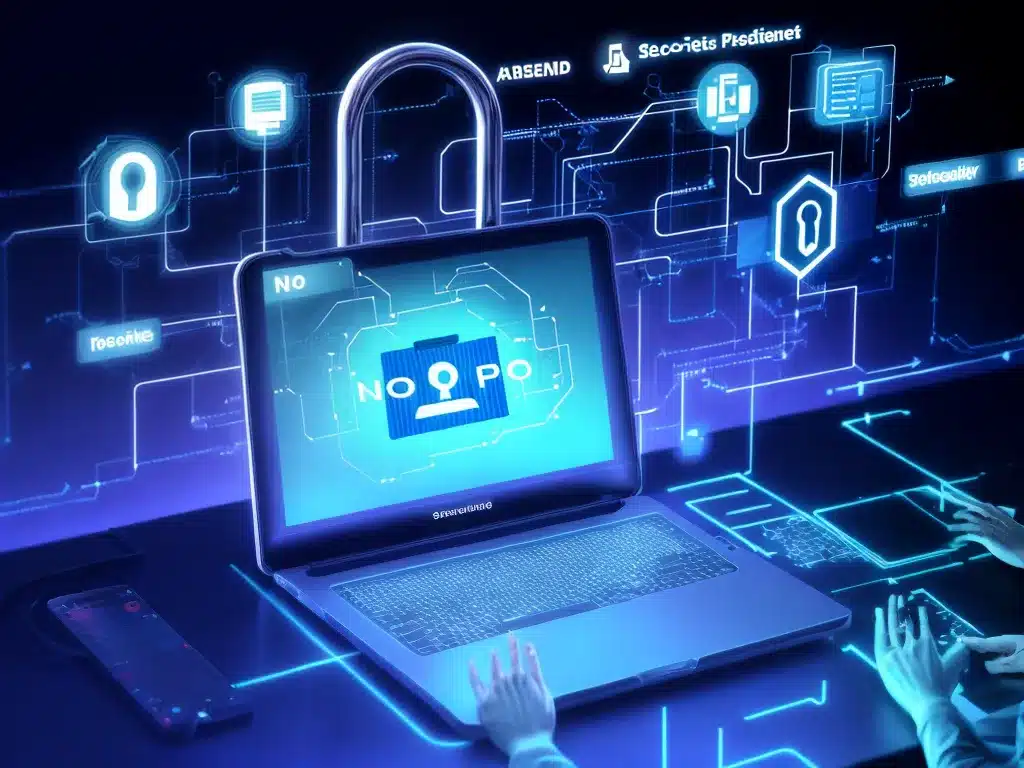
Security Risks of No-Code Platforms in 2024
Introduction
As someone who develops software for a living, I have been following the rise of no-code platforms with great interest. While they provide many benefits in terms of easy app development without needing to know how to code, there are also potential security risks that need to be considered before relying on these platforms. In this article, I will dive into the security issues surrounding no-code in 2024 and provide my perspective on how significant they may be.
What are No-Code Platforms?
For those unfamiliar, no-code platforms allow people to build software applications using a visual, drag-and-drop interface, without needing to write any actual code. Some popular examples include Appian, Zoho Creator, and Bubble.
The main benefits of these platforms are:
- Faster app development – No need to code everything from scratch
- Accessible to non-coders – Anyone can build apps without coding skills
- Cost-effective – Apps can be made with very little resources
This has led to a surge in adoption of no-code tools by small businesses, entrepreneurs, and pro developers alike. However, as we’ll explore next, there are some growing concerns around security.
Security Risks of No-Code Platforms
While no-code solutions provide many advantages, there are some notable security risks to consider:
Limited Control Over Security
- With traditional coding, developers have full control over app security features.
- With no-code tools, developers are limited by the platform’s built-in security capabilities.
- This means susceptibility to any vulnerabilities or weaknesses in the platform.
Misconfiguration Risks
- No-code platforms generate a lot of repetitive config code behind the scenes.
- Without visibility into this code, misconfigurations can easily occur, creating vulnerabilities.
- Requires trusting the platform’s security measures are correctly implemented.
Vendor Lock-in Risks
- Once apps are built on a no-code platform, it can be difficult to migrate them elsewhere.
- This can limit options if the platform is breached, goes out of business, etc.
- Puts full faith in vendor for ongoing security management.
Lack of Security Expertise
- No-code allows non-security experts to build applications.
- These citizen developers likely lack proper security training.
- May inadvertently introduce vulnerabilities into apps without realizing it.
Outlook for No-Code Security in 2024
Looking ahead to 2024, what is the outlook for no-code platform security? Here are my predictions:
- Adoption will continue growing – More businesses & developers drawn to no-code benefits.
- Security features will expand – Vendors will invest in security capabilities to build trust.
- Breaches may occur – Possible due to misconfigurations, vulnerabilities in platforms.
- Security training will grow – Platforms will provide more education to users on securing no-code apps.
- Hybrid approaches will emerge – Developers will use no-code along with custom code for security.
Overall there will likely be growing pains around security as no-code matures. But platforms and users will adapt to improve security postures over time. The benefits are too great for no-code to disappear, so it’s an evolution that will require ongoing vigilance.
Mitigating No-Code Security Risks
For those considering no-code tools, here are some tips to help mitigate security risks:
- Evaluate vendor security – Review third-party audits, pen testing, security practices.
- Use security extensions – Leverage add-ons that provide extra security capabilities.
- Provide user security training – Ensure proper app security principles are understood.
- Perform security testing – Conduct risk assessments, vulnerability scanning, penetration testing.
- Add custom security code – Supplement no-code platform features with custom security code as needed.
- Have an incident response plan – Be prepared to respond to potential security incidents related to no-code apps.
The Bottom Line
No-code platforms provide tremendous potential for fast and accessible app development, but also introduce new security considerations. As no-code adoption grows, security features and best practices will naturally evolve to better secure these applications. By taking proactive security measures and keeping vigilant, businesses can realize the benefits of no-code while keeping risks under control. The future of no-code in 2024 and beyond will be defined by our ability to marry rapid innovation with effective security.












